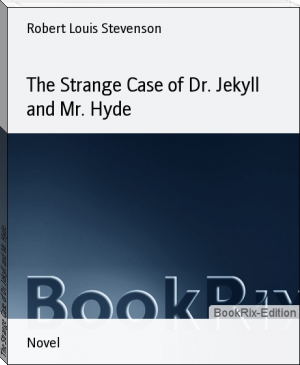Rilla of Ingleside by Lucy Maud Montgomery (the top 100 crime novels of all time .txt) 📕

- Author: Lucy Maud Montgomery
- Performer: 1594624275
Book online «Rilla of Ingleside by Lucy Maud Montgomery (the top 100 crime novels of all time .txt) 📕». Author Lucy Maud Montgomery
To be thus hectored and patronized by Mary Vance was unendurable! And it was unendurable to walk on stony roads with blistered heels and bare feet! And it was unendurable to be crying and have no handkerchief and not to be able to stop crying!
“I’m not thinking”—sniff—“about Kenneth”—sniff—“Ford”—two sniffs—“at all,” cried tortured Rilla.
“There’s no need to fly off the handle, child. You ought to be willing to take advice from older people. I saw how you slipped over to the sands with Ken and stayed there ever so long with him. Your mother wouldn’t like it if she knew.”
“I’ll tell my mother all about it—and Miss Oliver—and Walter,” Rilla gasped between sniffs. “You sat for hours with Miller Douglas on that lobster trap, Mary Vance! What would Mrs. Elliott say to that if she knew?”
“Oh, I’m not going to quarrel with you,” said Mary, suddenly retreating to high and lofty ground. “All I say is, you should wait until you’re grown-up before you do things like that.”
Rilla gave up trying to hide the fact that she was crying. Everything was spoiled—even that beautiful, dreamy, romantic, moonlit hour with Kenneth on the sands was vulgarized and cheapened. She loathed Mary Vance.
“Why, whatever’s wrong?” cried mystified Mary. “What are you crying for?”
“My feet—hurt so—” sobbed Rilla clinging to the last shred of her pride. It was less humiliating to admit crying because of your feet than because—because somebody had been amusing himself with you, and your friends had forgotten you, and other people patronized you.
“I daresay they do,” said Mary, not unkindly. “Never mind. I know where there’s a pot of goose-grease in Cornelia’s tidy pantry and it beats all the fancy cold creams in the world. I’ll put some on your heels before you go to bed.”
Goose-grease on your heels! So this was what your first party and your first beau and your first moonlit romance ended in!
Rilla gave over crying in sheer disgust at the futility of tears and went to sleep in Mary Vance’s bed in the calm of despair. Outside, the dawn came greyly in on wings of storm; Captain Josiah, true to his word, ran up the Union Jack at the Four Winds Light and it streamed on the fierce wind against the clouded sky like a gallant unquenchable beacon.
Rilla ran down through the sunlit glory of the maple grove behind Ingleside, to her favourite nook in Rainbow Valley. She sat down on a green-mossed stone among the fern, propped her chin on her hands and stared unseeingly at the dazzling blue sky of the August afternoon—so blue, so peaceful, so unchanged, just as it had arched over the valley in the mellow days of late summer ever since she could remember.
She wanted to be alone—to think things out—to adjust herself, if it were possible, to the new world into which she seemed to have been transplanted with a suddenness and completeness that left her half bewildered as to her own identity. Was she—could she be—the same Rilla Blythe who had danced at Four Winds Light six days ago—only six days ago? It seemed to Rilla that she had lived as much in those six days as in all her previous life—and if it be true that we should count time by heart-throbs she had. That evening, with its hopes and fears and triumphs and humiliations, seemed like ancient history now. Could she really ever have cried just because she had been forgotten and had to walk home with Mary Vance? Ah, thought Rilla sadly, how trivial and absurd such a cause of tears now appeared to her. She could cry now with a right good will—but she would not—she must not. What was it mother had said, looking, with her white lips and stricken eyes, as Rilla had never seen her mother look before,
“When our women fail in courage, Shall our men be fearless still?”
Yes, that was it. She must be brave—like mother—and Nan—and Faith —Faith, who had cried with flashing eyes, “Oh, if I were only a man, to go too!” Only, when her eyes ached and her throat burned like this she had to hide herself in Rainbow Valley for a little, just to think things out and remember that she wasn’t a child any longer—she was grown-up and women had to face things like this. But it was—nice—to get away alone now and then, where nobody could see her and where she needn’t feel that people thought her a little coward if some tears came in spite of her.
How sweet and woodsey the ferns smelled! How softly the great feathery boughs of the firs waved and murmured over her! How elfinly rang the bells of the “Tree Lovers”—just a tinkle now and then as the breeze swept by! How purple and elusive the haze where incense was being offered on many an altar of the hills! How the maple leaves whitened in the wind until the grove seemed covered with pale silvery blossoms! Everything was just the same as she had seen it hundreds of times; and yet the whole face of the world seemed changed.
“How wicked I was to wish that something dramatic would happen!” she thought. “Oh, if we could only have those dear, monotonous, pleasant days back again! I would never, never grumble about them again.”
Rilla’s world had tumbled to pieces the very day after the party. As they lingered around the dinner table at Ingleside, talking of the war, the telephone had rung. It was a long-distance call from Charlottetown for Jem. When he had finished talking he hung up the receiver and turned around, with a flushed face and glowing eyes. Before he had said a word his mother and Nan and Di had turned pale. As for Rilla, for the first time in her life she felt that every one must hear her heart beating and that something had clutched at her throat.
“They are calling for volunteers in town, father,” said Jem. “Scores have joined up already. I’m going in tonight to enlist.”
“Oh—Little Jem,” cried Mrs. Blythe brokenly. She had not called him that for many years—not since the day he had rebelled against it. “Oh —no—no—Little Jem.”
“I must, mother. I’m right—am I not, father?” said Jem.
Dr. Blythe had risen. He was very pale, too, and his voice was husky. But he did not hesitate.
“Yes, Jem, yes—if you feel that way, yes—”
Mrs. Blythe covered her face. Walter stared moodily at his plate. Nan and Di clasped each others’ hands. Shirley tried to look unconcerned. Susan sat as if paralysed, her piece of pie half-eaten on her plate. Susan never did finish that piece of pie—a fact which bore eloquent testimony to the upheaval in her inner woman for Susan considered it a cardinal offence against civilized society to begin to eat anything and not finish it. That was wilful waste, hens to the contrary notwithstanding.
Jem turned to the phone again. “I must ring the manse. Jerry will want to go, too.”
At this Nan had cried out “Oh!” as if a knife had been thrust into her, and rushed from the room. Di followed her. Rilla turned to Walter for comfort but Walter was lost to her in some reverie she could not share.
“All right,” Jem was saying, as coolly as if he were arranging the details of a picnic. “I thought you would—yes, tonight—the seven o’clock—meet me at the station. So long.”
“Mrs. Dr. dear,” said Susan. “I wish you would wake me up. Am I dreaming —or am I awake? Does that blessed boy realize what he is saying? Does he mean that he is going to enlist as a soldier? You do not mean to tell me that they want children like him! It is an outrage. Surely you and the doctor will not permit it.”
“We can’t stop him,” said Mrs. Blythe, chokingly. “Oh, Gilbert!”
Dr. Blythe came up behind his wife and took her hand gently, looking down into the sweet grey eyes that he had only once before seen filled with such imploring anguish as now. They both thought of that other time —the day years ago in the House of Dreams when little Joyce had died.
“Would you have him stay, Anne—when the others are going—when he thinks it his duty—would you have him so selfish and small-souled?”
“No—no! But—oh—our first-born son—he’s only a lad—Gilbert— I’ll try to be brave after a while—just now I can’t. It’s all come so suddenly. Give me time.”
The doctor and his wife went out of the room. Jem had gone—Walter had gone—Shirley got up to go. Rilla and Susan remained staring at each other across the deserted table. Rilla had not yet cried—she was too stunned for tears. Then she saw that Susan was crying—Susan, whom she had never seen shed a tear before.
“Oh, Susan, will he really go?” she asked.
“It—it—it is just ridiculous, that is what it is,” said Susan.
She wiped away her tears, gulped resolutely and got up.
“I am going to wash the dishes. That has to be done, even if everybody has gone crazy. There now, dearie, do not you cry. Jem will go, most likely—but the war will be over long before he gets anywhere near it. Let us take a brace and not worry your poor mother.”
“In the Enterprise today it was reported that Lord Kitchener says the war will last three years,” said Rilla dubiously.
“I am not acquainted with Lord Kitchener,” said Susan, composedly, “but I dare say he makes mistakes as often as other people. Your father says it will be over in a few months and I have as much faith in his opinion as I have in Lord Anybody’s. So just let us be calm and trust in the Almighty and get this place tidied up. I am done with crying which is a waste of time and discourages everybody.”
Jem and Jerry went to Charlottetown that night and two days later they came back in khaki. The Glen hummed with excitement over it. Life at Ingleside had suddenly become a tense, strained, thrilling thing. Mrs. Blythe and Nan were brave and smiling and wonderful. Already Mrs. Blythe and Miss Cornelia were organizing a Red Cross. The doctor and Mr. Meredith were rounding up the men for a Patriotic Society. Rilla, after the first shock, reacted to the romance of it all, in spite of her heartache. Jem certainly looked magnificent in his uniform. It was splendid to think of the lads of Canada answering so speedily and fearlessly and uncalculatingly to the call of their country. Rilla carried her head high among the girls whose brothers had not so responded. In her diary she wrote:
“He goes to do what I had done Had Douglas’s daughter been his son,”
and was sure she meant it. If she were a boy of course she would go, too! She hadn’t the least doubt of that.
She wondered if it was very dreadful of her to feel glad that Walter hadn’t got strong as soon as they had wished after the fever.
“I couldn’t bear to have Walter go,” she wrote. “I love Jem ever so much but Walter means more to me than anyone in the world and I would die if he had to go. He seems so changed these days. He hardly ever talks to me. I suppose he wants to go, too, and feels badly because he can’t. He doesn’t go about with Jem and Jerry at





Comments (0)